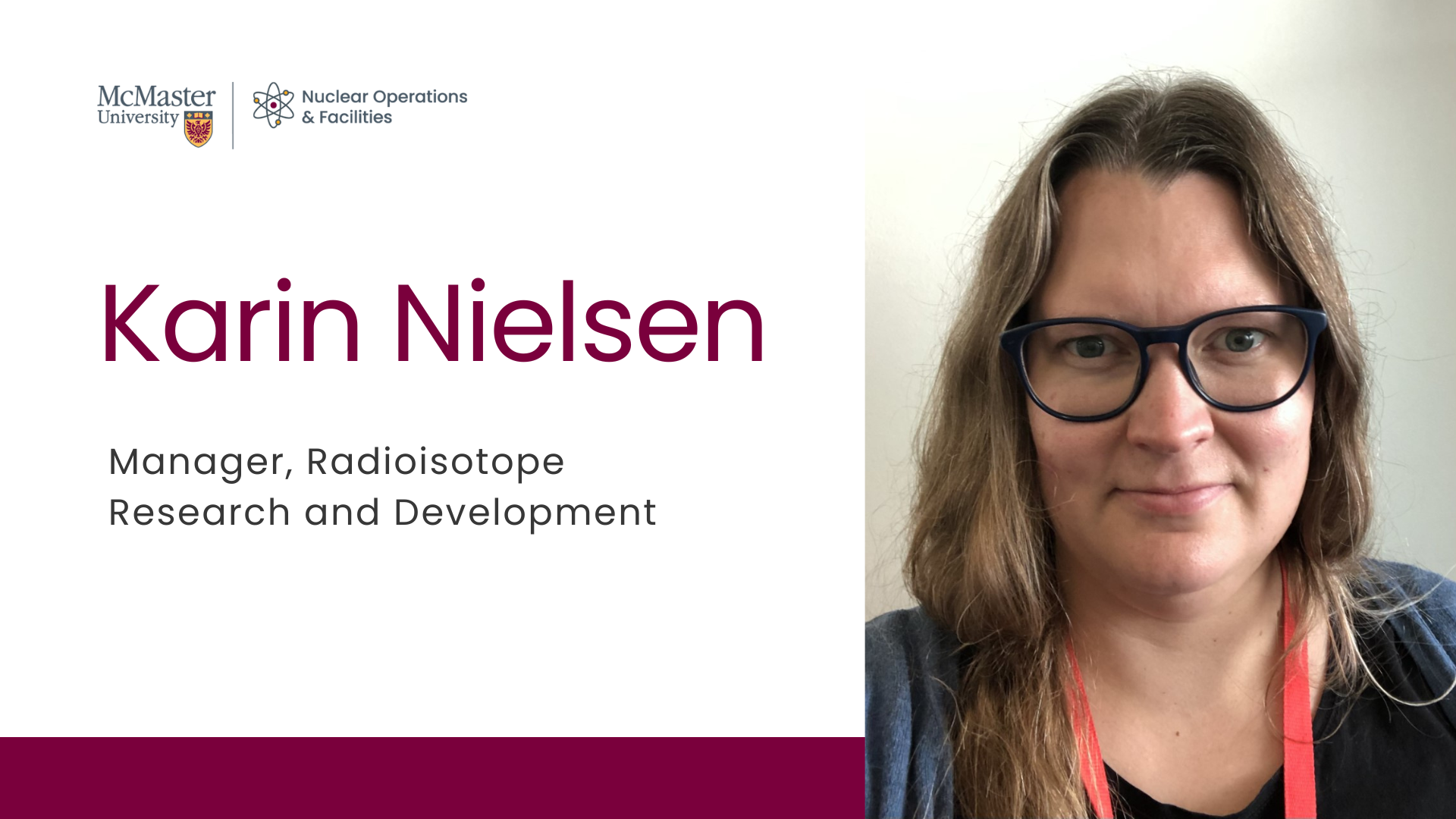Nuclear Operations & Facilities welcomes new Manager, Radioisotope Research and Development

Nuclear Operations & Facilities (NOF) is pleased to announce that Dr. Karin Michaelsen Nielsen has joined NOF as Manager, Radioisotope Research and Development.
Reporting to the Director of Research and Education Support, Karin Stephenson, Dr. Nielsen will lead NOF’s radioisotope program, supporting both Faculty and industry projects and guiding the evaluation, development and translation of radioisotopes for commercial production.
Dr. Nielsen graduated from Aarhus University in Denmark with a Master of Science in Medicinal Chemistry and the University of Copenhagen with a PhD in Radiochemistry. She previously worked as a R&D radiochemist at Copenhagen University Hospital and postdoctoral researcher at the Center for Nuclear Technologies at the Technical University of Denmark, before taking on the role as Facility Operations Manager & Research Fellow in Radionuclide Production at King’s College London. She has over 10 years of experience in translating radioisotope R&D to GMP production; writing and supporting research grants; and training the next generation of radiochemists.
Stephenson says Dr. Nielsen’s wealth of knowledge in radiochemistry and unique combination of skills in reactor-based and cyclotron-based radioisotope production makes her well-suited to the role.
“Thanks to recent investments from the provincial and federal government, McMaster is gearing up to increase radioisotope production at our nuclear facilities, including the McMaster Nuclear Reactor and McMaster University Cyclotron Facility. Karin’s expertise and leadership in this space will be invaluable as we continue to grow our radioisotope portfolio and work to support existing and new users across the University and in academia and industry,” says Stephenson.
As Manager, Radioisotope Research and Development, Dr. Nielsen will be the first line of contact for NOF’s internal, local, national and international user community as NOF expands its production capabilities and capacity to support the growing needs of its diverse userbase. She will work closely with McMaster Faculties to support grant writing and the execution and supervision of research projects at the University’s nuclear facilities.
“The unique infrastructure for radioisotope production and the highly skilled technical support housed at McMaster gives us huge potential to expand our radioisotope research, innovation and development activities and support the advancement of nuclear and healthcare technologies,” says Dr. Nielsen.
“I am very excited to be part of the team at NOF working towards expanding and strengthening our research capabilities across the University’s facilities.”
Dr. Nielsen can be reached at nielsk6@mcmaster.ca
About Radioisotopes at McMaster
Radioisotopes are widely used in basic and applied science and engineering – most notably as environmental and industrial tracers – and for medical imaging procedures, such as PET scans. The McMaster Nuclear Reactor (MNR) is well-suited for radioisotope production due to its reasonably high neutron flux and open-pool design, which facilitates the loading and removal of irradiation targets from the reactor core. The 16.5 MeV cyclotron at the McMaster University Cyclotron Facility (MUCF) produces positron-emitting radioisotopes for PET scans that complement the therapeutic isotopes generated at MNR. NOF currently produces a wide variety of radioisotopes for medical, research and technical applications.
News